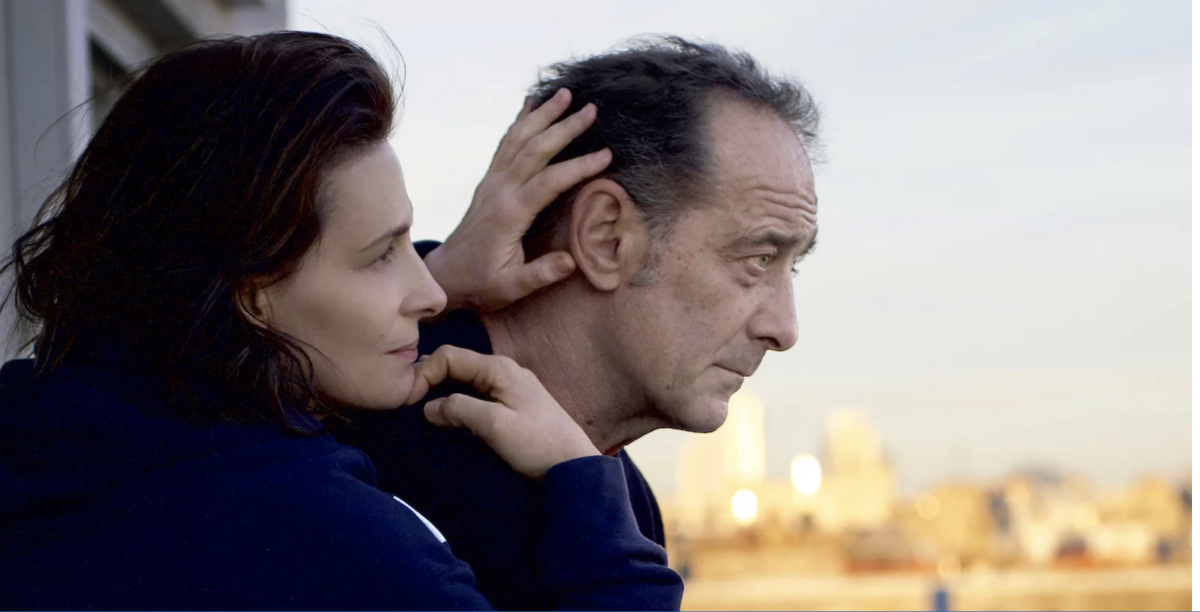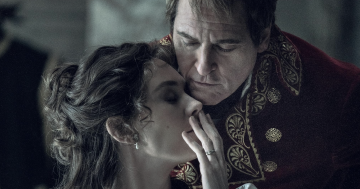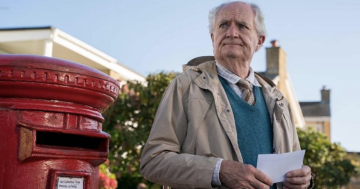
Juliette Binoche and Vincent Lindon star in the emotionally intense Both Sides of the Blade. Photo: Supplied.
“When I read the script, I felt, oh, yes, this is a place that is so truthful. For some people it is traumatic because you want to be fair to the loved one but you also want to be fair to what your body is feeling.”
That’s Juliette Binoche, in a discussion with the London Times about her latest film Both Sides of the Blade. It’s also known as Fire or With Love and Fury, which is perhaps the best translation into English of this Claire Denis French film which explores a woman’s love for two men.
The film opens with Sarah (Binoche) and her husband Jean (Vincent Lindon) floating in the sea, on holiday and lovingly caressing each other. Clearly they are very happy.
On their return to Paris we discover Jean, a former Rugby Union player who has done time in prison (we never find out why) has been offered a job scouting for young talent by François (Grégoire Colin) who has been absent for the past ten years and is establishing a sporting agency.
What we soon find out is that before Sarah met Jean she was madly in love with Francois, and he with her.
As soon as she sees Francois it’s abundantly clear her feelings for him have not dimmed. As the film unfolds, his feelings for her remain strong, or so it seems.
Jean is not a very communicative man and has trouble understanding Sarah’s discourse around their marriage. His son Marcus lives with Jean’s mother, who took custody of the boy while his dad was in jail. Marcus’ mother is not on the scene at all and now lives in Martinique.
The director Claire Denis, who first came to international prominence with Chocolat (1988) is an intense film maker. She spends time with these three actors in close quarters, and the focus is almost always on their faces and surrounds their conflicting feelings.
The film is in no way claustrophobic, but we are mainly dealing with the emotional complications between three people, so it is necessarily intense. And the conversations all centre around love, honesty, lies and betrayal.
As the film becomes more intense, the ground unexpectedly shifts between the two main players. Francois is the catalyst for change but he’s more of the spark that gives the others a new perspective and makes them question their own truth.
Several decisions are made that throw everything into the chaos we have been expecting for some time now. Both Sides of the Blade is a slow reveal and it lasts around two hours. But I think this sort of film needs time to explore the people and their complex relationships with one another, and we often forget that some movies need time to breathe.
Juliette Binoche and Vincent Lindon are giants of French cinema, and in the hands of any lesser actors this could look like something very different. We are talking about a very heavy drama, how things can fall apart and how language in a marriage under increasing stress, can mean something entirely different for both people involved.
In the end I found this one of the better French films I’ve seen in recent years, but I also have to be honest I found it totally emotionally crushing and exhausting. It asks a lot of its audience and like the relationships in it, often doesn’t return the favour, which is probably the main point of it.
Both Sides of the Blade, which really is the perfect metaphor in operation here, receives four out of five stars

















